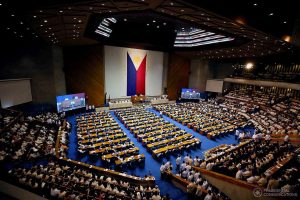THE recently signed Accelerated and Reformed Right-of-Way (ARROW) will aid the Philippines in becoming an upper middle-income economy by facilitating the completion of infrastructure projects, the Presidential Communications Office (PCO) said in a statement on Tuesday.
The ARROW Act or Republic Act No. 12289, which revised key provisions of the 2016 Right-of-Way Act (R.A. No. 10752), overhauls the land acquisition process, compensation standards, expropriation and relocation rules governing infrastructure projects.
The PCO said the amended Section 10 of the law designates Republic Act No. 11966, or the 2023 Public-Private Partnership Code of the Philippines as the relevant document governing right-of-way acquisition in public-private partnership projects.
Meanwhile, compensation for affected land, structures, improvements, and immovable machinery will be determined according to the provisions of the New Civil Code, the PCO said.
The ARROW Act updates also require agencies and private concessionaires to make a deposit on properties contemplated for acquisition, including crops, trees, and improvements, equivalent to 15% of market value.
Market value was defined as full replacement cost, accounting for depreciation.
The new law ties compensation to the schedule of market values set by the 2024 Real Property Valuation and Assessment Reform Act.
If no schedule is available, payments will instead refer to the Bureau of Internal Revenue zonal valuation and the assessed worth of improvements — such as immovable machinery, structures, crops, or trees.
For untitled land, owners or possessors must present a tax declaration, affidavits from disinterested local residents, a real property tax certificate, a certification from the Department of Environment and Natural Resources, and a technical description of the property.
The new relocation rules require the Department of Human Settlements and Urban Development to work with local governments in establishing and developing resettlement sites for informal settlers.
Section 12 holds private firms civilly or criminally accountable in the event of violations, including company presidents, managers, directors, and trustees.
President Ferdinand R. Marcos, Jr. signed into law Republic Act No. 12289 on Sept. 12. — Chloe Mari A. Hufana


















